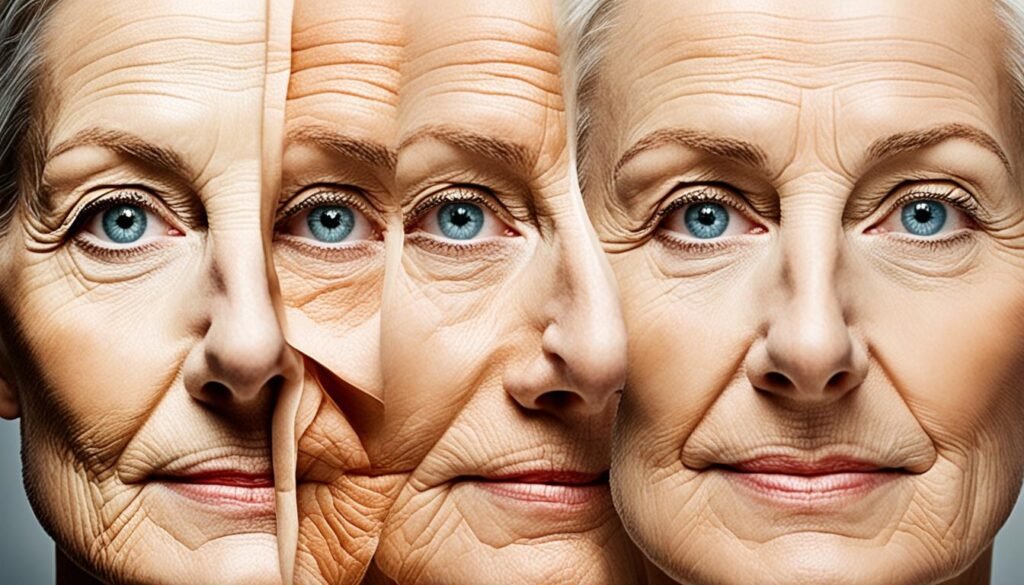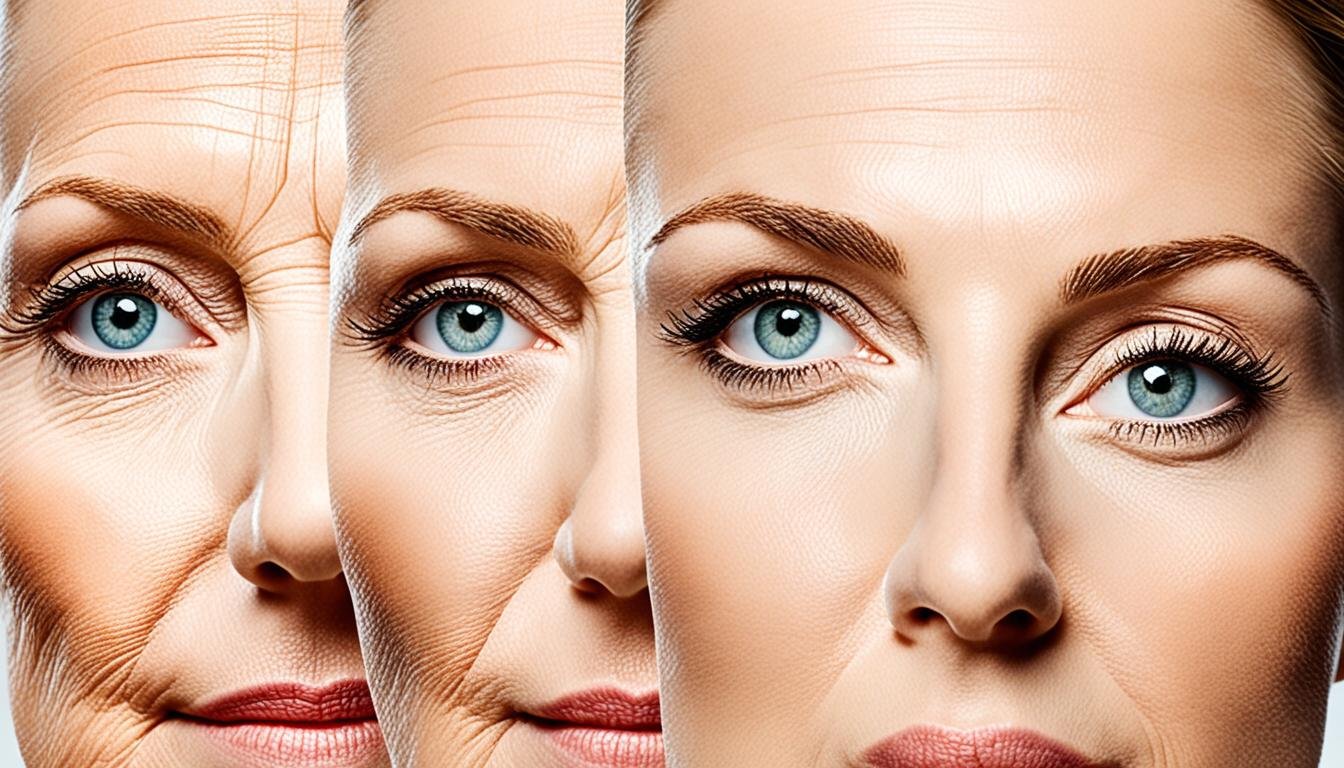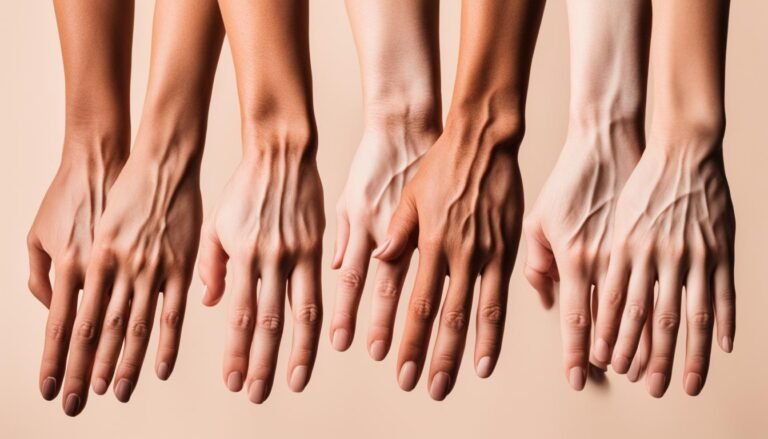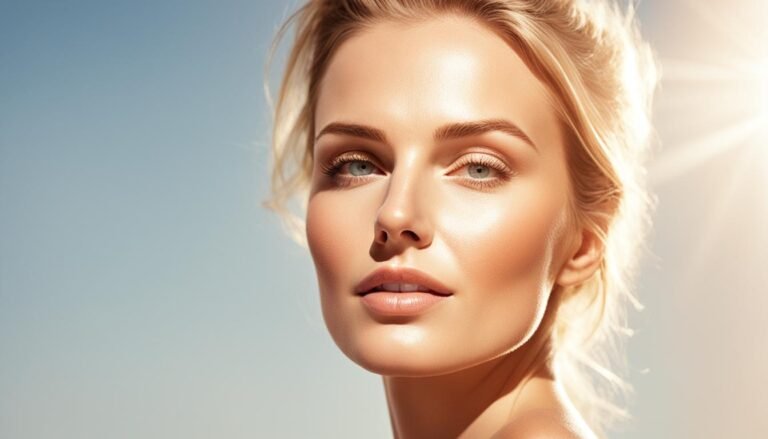Do fair skin people age better?
When it comes to aging, we often hear that fair-skinned people have the advantage. But is this really true? Let’s explore the science behind aging and skin tone to uncover the truth about whether fair skin truly ages better.
Key Takeaways:
- Fair-skinned individuals may experience more rapid skin aging compared to those with darker skin.
- The lower levels of melatonin in fair skin make it more susceptible to sun damage and collagen breakdown.
- Taking proper care of the skin can help delay the appearance of wrinkles and other signs of aging for people of all skin tones.
- Darker skin tones produce more melanin, providing better protection against the damaging effects of UV rays.
- Thin skin, dryness, sunburn, and inflammation can contribute to faster skin aging in fair-skinned individuals.
The Role of Melanin in Aging
Melanin, the pigment responsible for the color of the skin, plays a crucial role in protecting against the damaging effects of the sun. Darker skin tones produce more melanin, whereas fair skin produces less.
This difference in melanin content makes fair-skinned people more vulnerable to sun damage and aging. Up to 55% of UV rays can penetrate Caucasian skin, compared to only 18% in Afro-descendant individuals.
These UV rays can cause the breakdown of collagen and the development of wrinkles, contributing to an accelerated aging process in fair-skinned individuals.
Additionally, fair skin is more prone to sunburn, scars, and hyperpigmentation as a result of excessive sun exposure.
How Melanin Protects the Skin
| Darker Skin Tones | Fair Skin |
|---|---|
| Produce more melanin | Produce less melanin |
| Higher protection against UV rays | Lower protection against UV rays |
| Reduced risk of sun damage and wrinkles | Increased risk of sun damage and wrinkles |
| Less prone to sunburn and hyperpigmentation | More prone to sunburn and hyperpigmentation |
Factors Contributing to Faster Skin Aging in Fair-Skinned Individuals
Fair-skinned individuals are more susceptible to faster skin aging due to several factors related to their unique skin characteristics. These factors include thin skin, sagging, dry skin, sunburn, and inflammation.
Thin skin: Fair-skinned individuals often have thinner skin compared to individuals with darker skin tones. Thinner skin is less supportive and elastic, making it more prone to the effects of external aging factors such as sun exposure, pollution, and wind.
Sagging: Due to its lack of support, thin skin is more likely to sag and lose elasticity as the aging process progresses. This can lead to the formation of lines and wrinkles, contributing to a more aged appearance.
Dry skin: Fair skin tends to be drier compared to darker skin tones. Dry skin lacks moisture and pliability, making it more susceptible to the development of fine lines and wrinkles.
Sunburn: Fair-skinned individuals are more prone to sunburn compared to individuals with more melanin in their skin. A history of sunburn, especially severe cases with blistering and peeling, can result in cumulative sun damage, leading to faster skin aging.
Inflammation: Inflammatory skin conditions, such as eczema, can hinder the skin’s ability to repair itself effectively. This can contribute to premature aging signs, including wrinkles and fine lines.
To better understand the factors contributing to faster skin aging in fair-skinned individuals, refer to the table below:
| Factors | Effects |
|---|---|
| Thin skin | Sagging, increased vulnerability to external aging factors |
| Dry skin | Proneness to fine lines and wrinkles |
| Sunburn | Cumulative sun damage |
| Inflammation | Premature aging signs |

Conclusion
While fair skin may be more susceptible to visible signs of aging, it’s important to recognize that aging is a unique and individual journey for everyone. The genetic and ethnic characteristics of your skin do play a significant role, but there are steps you can take to age gracefully and maintain healthy skin.
By prioritizing skincare and making informed choices, you can have a positive impact on the aging process. Tailoring your skincare regimen to your specific needs and skin type is essential. Using moisturizers and products that are suitable for your skin can help diminish the appearance of wrinkles and keep your skin healthy and hydrated.
Protecting your fair skin from sun damage is crucial in preventing premature aging. Always wear sunscreen with a high SPF, protective clothing, and seek shade during peak sun hours. Limiting sun exposure is key to reducing photoaging and the breakdown of collagen, which can lead to wrinkles and sagging.
Remember, embracing your fair skin and adopting a personalized approach to skincare can help you age gracefully. With the right skincare routine and a focus on prevention, you can put your best face forward and maintain the health and vitality of your skin as you age.






